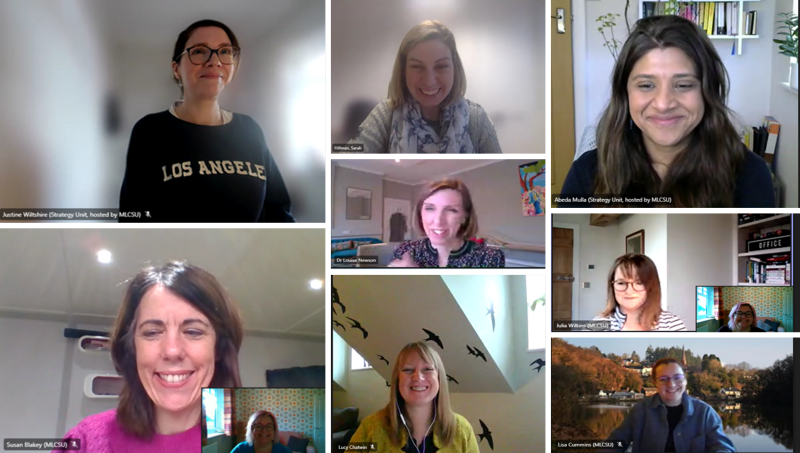World Menopause Day 2022 update
What is it like to experience menopause as an NHS employee? And what is its impact on both the individuals and the organisations they work for?
The Strategy Unit and the Health Economics Unit are working together to answer these questions. Early findings indicate that the scale of the impact is underestimated.
“I don't know what the demographics are, but if you look at the numbers of females between 40 and 55, the chances are the majority of them are going through some sort of perimenopause or menopause. […] more needs to be shared around that [...] Just so we can see how big an impact it is. I don't think everybody's clear about who it does affect and at what stage of life typically, on average." Interviewee
Indeed, analysis of workforce data reveals a fifth of all NHS employees are of menopausal age. By combining descriptive, interview and economic analyses, the team will shed light on the current status of NHS staff likely to be experiencing menopausal symptoms. And work with others to lead change from within the NHS.
The full report will be published here on the Strategy Unit Website later this year.
Launch of Menopause and the NHS workforce project
On International Women’s Day 2022, the Strategy Unit was pleased to announce a study to examine the impact of menopause on the NHS workforce.
Menopause is a natural part of ageing. It usually occurs between 45 and 55 years of age, as a woman's oestrogen levels decline. The years leading up to menopause are referred to as the perimenopause, which usually lasts between four and eight years.
During this period, many women experience symptoms which adversely affect their personal and working lives. While experience is far from uniform, women frequently report lower productivity, reduced job satisfaction and problems with time management.
This is a significant issue for the NHS. It is the largest single employer in Europe, and around 75% of its 1.85 million employees are female. Given current pressures, it is especially important that the NHS understands the likely impacts of the menopause on its workforce.
Yet there are gaps in our knowledge. And this hampers employers’ ability to design effective support. To address this, the Strategy Unit is leading a study to explore:
- The proportion of the NHS workforce that are likely to be in the perimenopausal period and the socio-demographic and employment characteristics of this group.
- Sickness absence rates amongst perimenopausal women compared to younger and older women and to men of a similar age.
- The economic impact of NHS staff experiencing perimenopause and menopause, through assessing sickness absence. The rates of women joining and leaving the NHS workforce during the perimenopausal period, compared to younger and older women and to men of a similar age.
- The experience of women working in the NHS in managing their perimenopause and menopause symptoms whilst at work.
- The different experiences of women across Agenda for Change bands and staff groups in managing their symptoms and accessing workplace support.
The study is funded by Midlands and Lancashire Commissioning Support Unit (MLCSU). It will start in April 2022 and run for six months. And the MLCSU team will benefit from the involvement of two specialist clinical advisors for this study:
- Dr Louise Newson, who is a GP and menopause expert. Louise is the founder of Newson Health Menopause & Wellbeing Centre, and author of ‘Preparing for the Perimenopause and Menopause’
- Dr Sarah Hillman, who is a GP and University of Warwick researcher with a specialist interest in healthcare feminism (see Sarah’s TEDxNHS talk).
Equipped with insights from this work, the NHS will be more able to support its workforce.
The Strategy Unit is proud to be working on a topic of such fundamental importance to so many women.
For more information please contact Dr Abeda Mulla (abeda.mulla@nhs.net)
